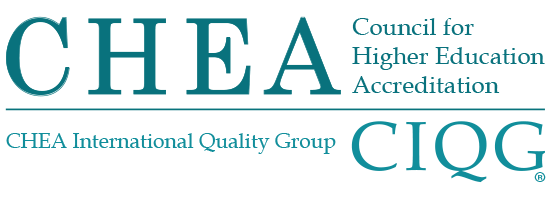Displaying items by tag: нкаоко
Institutional accreditation
INSTITUTIONAL ACCREDITATION
Institutional accreditation is the process of assessing the quality level of an educational institution in accordance with the declared status. In the process of institutional accreditation, the quality of education and the scientific activities of the educational organization are evaluated.
The IQAA institutional accreditation standards are developed in accordance with the "Standards and Guidelines for Quality Assurance in the European Higher Education Area" (ESG) and are intended for the internal quality assurance system of higher education institutions.
The standards and criteria for institutional accreditation of higher education institutions are developed in accordance with the Law of the Republic of Kazakhstan "On Education", the European Standards and Guidelines for Quality Assurance of Higher Education (ESG), the requirements of the Bologna Process, international practice on institutional accreditation and audit of higher education.
The standards and criteria of institutional accreditation are intended for internal quality assurance of higher education institutions.
The standards and criteria for institutional accreditation are based on four key ESG principles:
1.Higher education institutions are fully responsible for the quality of the provision of educational services and ensuring their quality.
2.Quality assurance is consistent with the diversity of higher education systems, universities, educational programs, and students.
3.Quality assurance supports the development of a quality culture.
4.Quality assurance takes into account the needs and expectations of students, all other stakeholders, and society.
Standards for Institutional Accreditation of Higher Education Organizations (2021)
INITIAL INSTITUTIONAL ACCREDITATION
Initial institutional accreditation (ex-ante) of higher education institutions – the process of assessing the quality of the organization of higher education (licensed by the state for educational activities) without the release of students for compliance with the declared status and standards of the accreditation body.
The initial accreditation status of an educational organization is granted when the educational organization demonstrates its potential to meet the IQAA accreditation standards developed on the basis of the ESG.
Initial institutional accreditation provides for all procedures for conducting an external audit in accordance with the standards and criteria for institutional accreditation of the educational organization/educational program, with the exception of interviews with graduates, employers, and students and the implementation of the recommendations of the expert group after obtaining the status of initial accreditation.
Additional Info
-
Баннер

-
Banner_middle

-
Banner_small

ADDITIONAL EDUCATION
ADDITIONAL EDUCATION
Additional professional education is aimed at meeting the educational needs throughout life in order to obtain an additional amount of knowledge and skills in accordance with the ongoing socio-economic changes in society.
Additional adult education is provided by the educational organizations, as well as the legal entities that have structural divisions that implement additional educational programs.
In the process of institutional accreditation, the quality of education and the scientific activity of the educational institution is evaluated. The IQAA standards and criteria for institutional accreditation are developed in accordance with the Standards and Guidelines for Quality Assurance in the European Higher Education Area (ESG) and are intended for the internal quality assurance of the educational institution.
Through accreditation, the educational institution has the opportunity to receive an independent expert assessment and measures to further improve its activities.
The accreditation procedure of the educational program is carried out by independent international and national experts in accordance with the Standards and criteria of the IQAA program accreditation and covers all aspects of the educational program.
After receiving accreditation, the Agency annually conducts post-accreditation monitoring (PAM). Educational institutions must submit an annual report to IQAA on the changes and achievements that have occurred during the year in order to carry out continuous monitoring of activities and periodic evaluation of educational programs. Periodically and selectively, monitoring is carried out with a visit directly to the educational organization. All procedures for post-accreditation monitoring are prescribed in the Regulations on Post-accreditation Monitoring.
Thus, by promoting high quality in education, the Agency provides an opportunity for educational organizations to eliminate the identified inconsistencies and improve their activities.
Additional Info
-
Баннер

-
Banner_middle

-
Banner_small

PRESCHOOL AND SECONDARY EDUCATION
PRESCHOOL AND SECONDARY EDUCATION ACCREDITATION
Accreditation of educational organizations is a procedure of recognition by the accreditation body of conformity of educational services to the established standards (regulations) of accreditation in order to provide objective information on their quality and to confirm the availability of effective mechanisms for its improvement (subparagraph 16 of Article 1 of the Law of the Republic of Kazakhstan ‘On Education’).
1. Providing a mechanism for ensuring the quality and effectiveness of the educational process in preschool and secondary education organizations.
2. Stimulating the activities of the organization in the direction of improving the quality of preschool and secondary education and upbringing.
3. Providing a real opportunity for parents of preschool and secondary education children to choose an individual educational route for their child from a wide range of high-quality educational services.
- Procedure for accreditation of preschool and secondary education organizations is carried out voluntarily;
- Focus on improving the quality of preschool education and upbringing;
- Integrity and transparency: internal and external evaluations are conducted fairly and transparently, and information is made available to all participants in the ongoing accreditation process;
- Objectivity and independence: internal and external evaluation is conducted objectively, independently of third parties;
- Responsibility of educational organizations: the primary responsibility for the quality of education and upbringing is assigned to the preschool and secondary education organizations;
- Quality assurance takes into account the needs of children, all other stakeholders, and society as a whole.
Additional Info
-
Баннер

-
Banner_middle

-
Banner_small


 Ministry of Science and Higher Education of the Republic of Kazakhstan
Ministry of Science and Higher Education of the Republic of Kazakhstan 


 Ministry of Education and Science of the Kyrgyz Republic
Ministry of Education and Science of the Kyrgyz Republic




